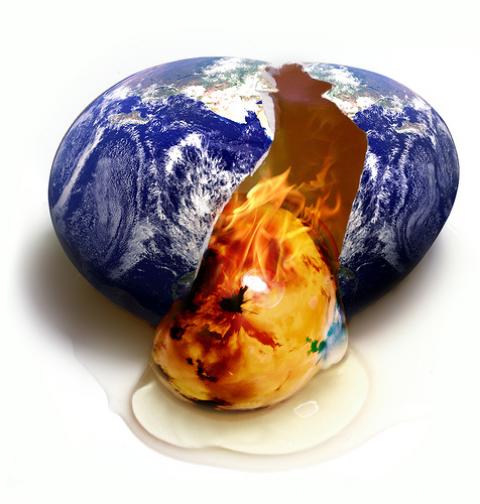The weather in Sochi has been uncommonly warm for a Winter Olympics. Jon Stewart joked - but it happened to be true - that it was colder in Florida than in Sochi. As a result, conditions have been considerably less than optimal for many of the competitors.
The Snowboard Halfpipe competition was affected by the temperature because the snow at the bottom of the pipe was slushy and made it difficult for the snowboarders to maintain speed and control between the spectacular aerial tricks on which the event's scoring is based.
Shaun White, former two-time gold medalist, was the favorite in the event. He did in fact turn in the highest of all the scores, but it didn't count toward winning a medal because it was earned in a qualifying run. In the two runs he made in the final round, a small slip in each left him in fourth place - without a bronze medal, much less a gold.
White was gracious in defeat and did not try to blame his errors on the snow conditions. The standard clich, was invoked by the athletes and commentators alike: "The conditions were the same for all of the snowboarders, so it was a fair competition."
But having a "level playing field" is not the only consideration in cases of this sort. The problem was not that the sloppy snow made it unfair to any individual competitor, but that it introduced an element of volatility into the competition. Shaun White still had as good or better chance to medal than any of his colleagues, but the odds of his coming out on top were substantially reduced.
Consider this reductio ad absurdum: Imagine me, a typical weekend tennis player, taking on Rafael Nadal. In conditions anywhere near normal, I would be lucky to take a point off him. But on an extremely bumpy court during an earthquake, I might well win a point or two.
In other words, in spite of his own reluctance to say so, Shaun White got hosed. He might not have won the gold medal anyway, but if the surface the snowboarders traversed had been dependable his odds would have been much higher.
Scaling up the weather volatility to much larger dimensions, consider the discourse over global warming. The reality of anthropogenic climate change is hardly an issue among climate scientists any more, but the spinmeisters on the payroll of the oil industry keep it alive in the "national conversation."
One of their standard gambits is to point to record cold weather, as occurred this winter in much of the United States, and chortle, "What warming?" It is an appeal to the kind of common sense that rarely penetrates beneath surface appearances. The problem, however, is that worldwide temperatures are rising in the context of increasingly volatile weather. Localized harsh winters are employed as anecdotal evidence to deny the universal trend.
Political activity has been increasingly stormy, too, beginning with the Arab Spring. BBC News on February 17 was dominated by reports on ferocious anti-government mobilizations in three separate countries: Ukraine, Thailand, and Venezuela. The images from Ukraine were particularly dramatic, with massive bonfires raging between hundreds of thousands of angry protestors and riot police.
It is not surprising, in an era of rapidly growing economic inequality, that political polarization and instances of class warfare would be on the rise. The expectation, however, would be of clashes between the ruling rich and the wretched of the earth, but that is not the case in Ukraine, Thailand, and Venezuela. In all three countries, relatively privileged layers of society are attacking their respective governments for policies they believe favor the "lower classes."
The billionaires' incessant drive to accumulate an ever greater share of the world's material resources has led to greater struggles over the leftovers among everyone else - which is to say, to increased political volatility. The new middle classes that emerged in the past few decades in Ukraine, Thailand, and Venezuela are caught up in that struggle, too, and are defending their newfound economic status. Unfortunately, they have been led by demagogues to direct their ire toward those even more victimized by the global economic downturn rather than toward those who are really causing the problem. But are nonrevolutionary or even counterrevolutionary mass mobilizations the wave of the future? There is no reason to think so, because the volatility that caused them can be expected to propel the less privileged social layers into struggle as well.
[Clifford D. Conner is the author of A People's History of Science (Nation Books, 2005) and a contributor to the recently published anthology Imagine: Living in a Socialist U.S.A. (HarperCollins, 2014). He teaches history of science at the School for Professional Studies of the City University of New York Graduate Center.]


Spread the word